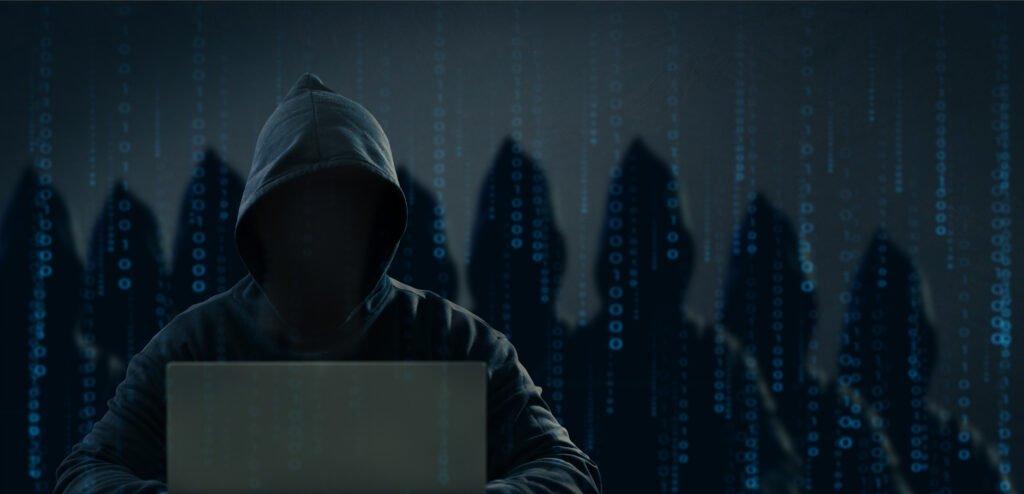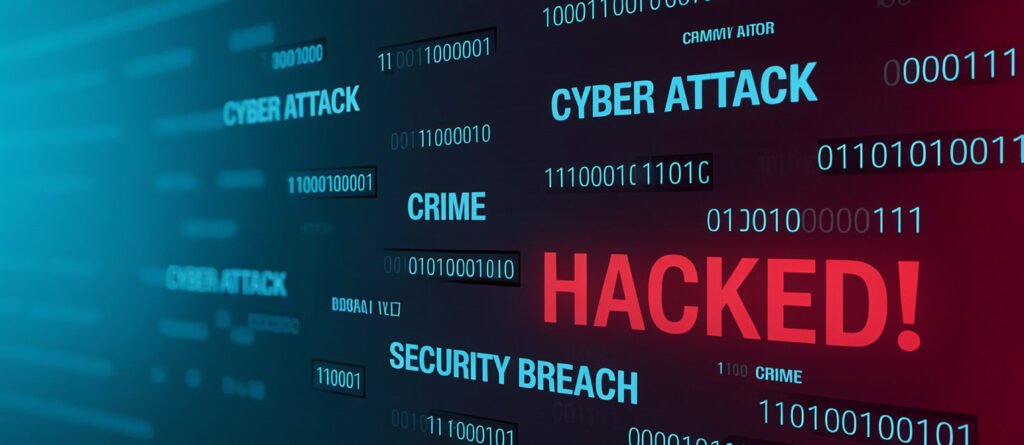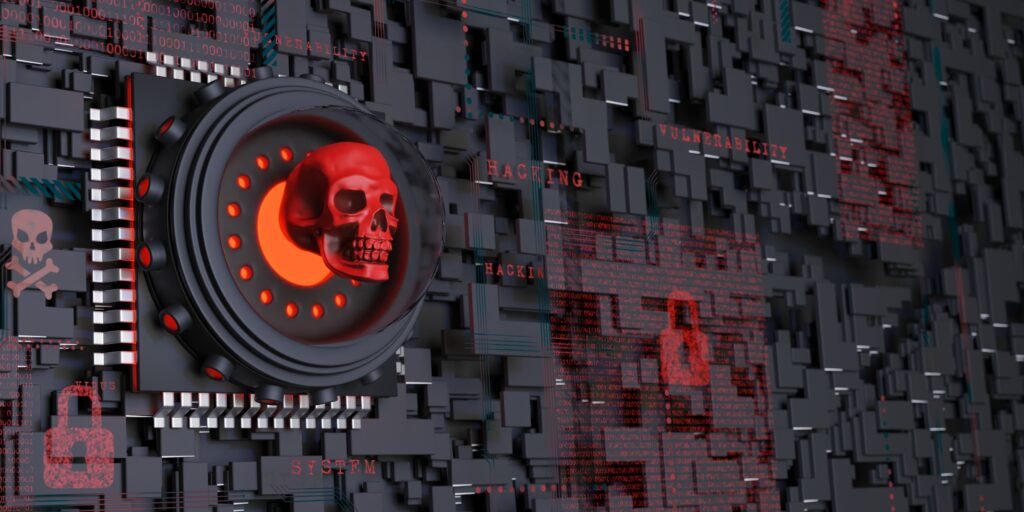Cybercrime Syndicates Organized Hacking At A New Global Scale
Cybercrime Syndicates Organized Hacking At A New Global Scale INTRODUCTION In the background of the cyber world, a revolution is being quietly accomplished—one where cybercrime gangs orchestrated hacking assaults with the sophistication of military-style operations. Those nefarious players are no longer individual hackers who operated alone. Rather, they are well-structured enterprises with set hierarchies, responsibilities, and objectives. With the speed-up of the world through its digital revolution, the extent, severity, and levels of sophistication of cybercrime gangs organized hacking have hit dramatic heights. From extorting government agencies and multinational corporations to hijacking cryptocurrencies and ransom attacks on critical infrastructure, these cybercrime syndicates are now operating globally with impunity. This blog takes a close-up look at the rise of these cybercrime syndicates, how they operate, why their tactics are more dangerous than ever, The Rise of Organized Cybercrime Syndicates Hacking in the early years of the internet was largely done by hobbyists and small-time scammers. But now, syndicate-based organized hacking on behalf of cybercrime syndicates is a multi-billion-dollar worldwide business. Syndicates operate much like traditional mafia organizations in sophistication and organization. Growth Drivers: Dark Web Marketplaces: In-a-nutshell marketplaces have made it easy for syndicates to purchase and sell malware, exploits, credentials, and hacking tools. Cryptocurrencies: Monero and Bitcoin provide anonymous channels for receiving ransom payments and conducting transactions, which drive criminal operations. Global Political Tensions: State-sponsored hacking groups diffuse the distinction between cyberwar and cybercrime. Remote Work Culture: Global remote work during and following COVID-19 blew open attack surfaces for hackers to take advantage of. Structure of Cybercrime Syndicates Modern cybercrime gangs structured hacking operations will tend to emulate corporate structure. They give distinct roles to each member: Coders and Developers: Develop ransomware, spyware, and exploit kits. Phishers and Social Engineers: Scam users into providing credentials or running malware. Network Intrusion Experts: Identify security loopholes in corporate networks and exploit them for the group’s advantage. Money Mules and Launderers: Conceal stolen money with crypto mixing, shell companies, and cross-border banking loopholes. Leaders and Financiers: Plan attacks, assign resources, and assign streams of revenue. They become so potent due to coordination, more difficult to track, and horrifically strong. Global Targets and Strategies Hacking operations conducted by organized cybercrime syndicates aim at a broad spectrum of industries worldwide. The more sensitive the industry, the greater the ransom or blackmail. Key Targeted Industries: Healthcare – Patient information are time-sensitive and incredibly valuable. Finance – Banks and fintech firms are goldmines of precious data. Energy and Utilities – Infrastructure incursions cause chaos and sense of exigency. Retail and E-commerce – Identity and credit card information are top targets. Most Common Methods: Ransomware-as-a-Service (RaaS): Leasing ransomware software to affiliates. Supply Chain Attacks: Targeting third-party suppliers in an attempt to gain access to larger corporations. Credential Stuffing: Leveraging compromised credentials from other attacks. Business Email Compromise (BEC): E-mailing executives to ask for bogus wire transfers. Zero-Day Exploits: Exploiting yet-to-be-discovered vulnerabilities prior to the time vendors can patch them. Case Studies: Real-World Consequences 1. Conti Ransomware Group Arguably one of the most well-known cybercrime gangs, organized groups of hackers were orchestrated by Conti, which actively operated globally, attacking hospitals, infrastructure, and government agencies. A whistleblower’s internal leak of communications revealed how business-like and professional their operations were. 2. REvil/Sodinokibi Russia-based cybercrime gang caused chaos with ransomware attacks on JBS (the world’s largest meat supplier) and Kaseya, impacting thousands of businesses. 3. DarkSide Most famously for breaching the Colonial Pipeline in the US, fueling shortages and widespread panic, DarkSide’s attack showed how cybercrime can lead to real-world crises. The Role of the Nation-State and Proxy Groups Certain cybercrime syndicates that organize and conduct hacking campaigns are surrogates of intelligence agencies or do so with winking approval from governments. North Korea’s Lazarus Group: Charged with hacking billions to pay for weapons development projects. Russia-based APT Groups: Employ cybercrime to destabilize competitors or obtain strategic infrastructure data. Convergence of political motive and criminal intent complicates attribution, deterrence, and response. The Economic Impacts Financial loss due to cybercrime is estimated at $10.5 trillion by 2025. Organized hacking due to cybercrime syndicates is a key driver for this emerging digital threat. Expenses involve: Operational downtime Regulatory fines Ransom payments Reputation loss Legal expenses Organizations now need to incorporate cyber resilience in risk management planning because recovery expenses vastly exceed the expense of prevention. Cybercrime-as-a-Service (CaaS): Enabling the Entry Barrier Low Criminalization of hacking tools and services has developed the concept of CaaS platforms. The scheme offers even the low-capability ones the means to lease malware, phishing kits, or botnets and execute attacks. CaaS marketplaces are: Ransomware-as-a-Service Phishing Kits DDoS-for-Hire Services Access Brokers The accessibility lowers cybercrime to no longer be reserved for technical wizards—anyone can become a cybercriminal with proper tools. Law Enforcement and Global Response In spite of all these obstacles, police organizations around the world have begun to collaborate to fight back against cybercrime syndicates organized hacking: Interpol and Europol: International coordination and international cybercrime task forces. Joint Cybercrime Action Taskforce (J-CAT): Monitors leading criminal communities that have a global reach. FBI Takedowns: Dark web markets and ransomware servers have been shut down in number. However, jurisdictional lines, encryption, and anonymity are still the major obstacles. How Organizations Can Protect Themselves 1. Threat Intelligence Use threat detection software that offers real-time intelligence of newly emerging threats. 2. Employee Training Human mistake is still one of the key causes of breaches. Training employees on a regular basis can prevent phishing and social engineering attacks. 3. Incident Response Planning Maintain an incident response and recovery plan that has been validated. 4. Regular Audits Perform vulnerability testing and penetration testing to locate and fix vulnerabilities before the hackers attack them. The Future of Hacking Syndicates The future of cybercrime syndicates organized hacking will only evolve: AI-Aided Attacks: Use AI to enhance phishing, automate intrusion, and create more sophisticated malware. Quantum Computing Threats: Upcoming computing power breaks old encryption. Deepfake and Voice Cloning: Utilized to deceive employees into approving transfers or divulging confidential information.
Cybercrime Syndicates Organized Hacking At A New Global Scale Read More »










